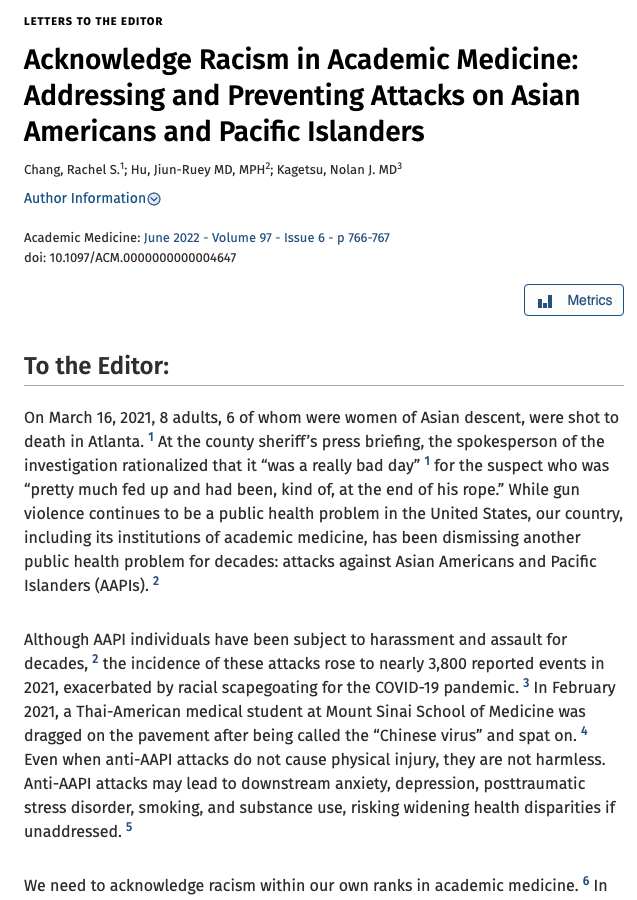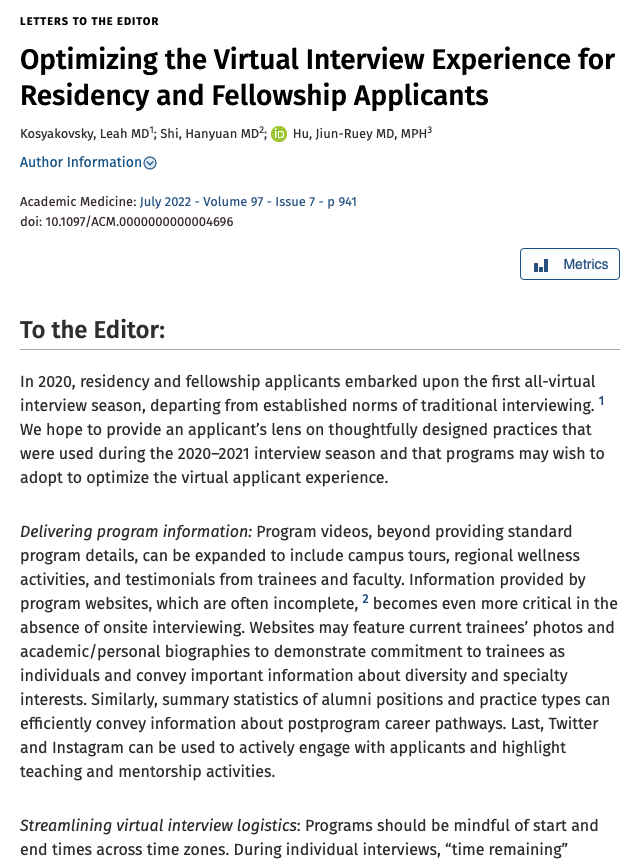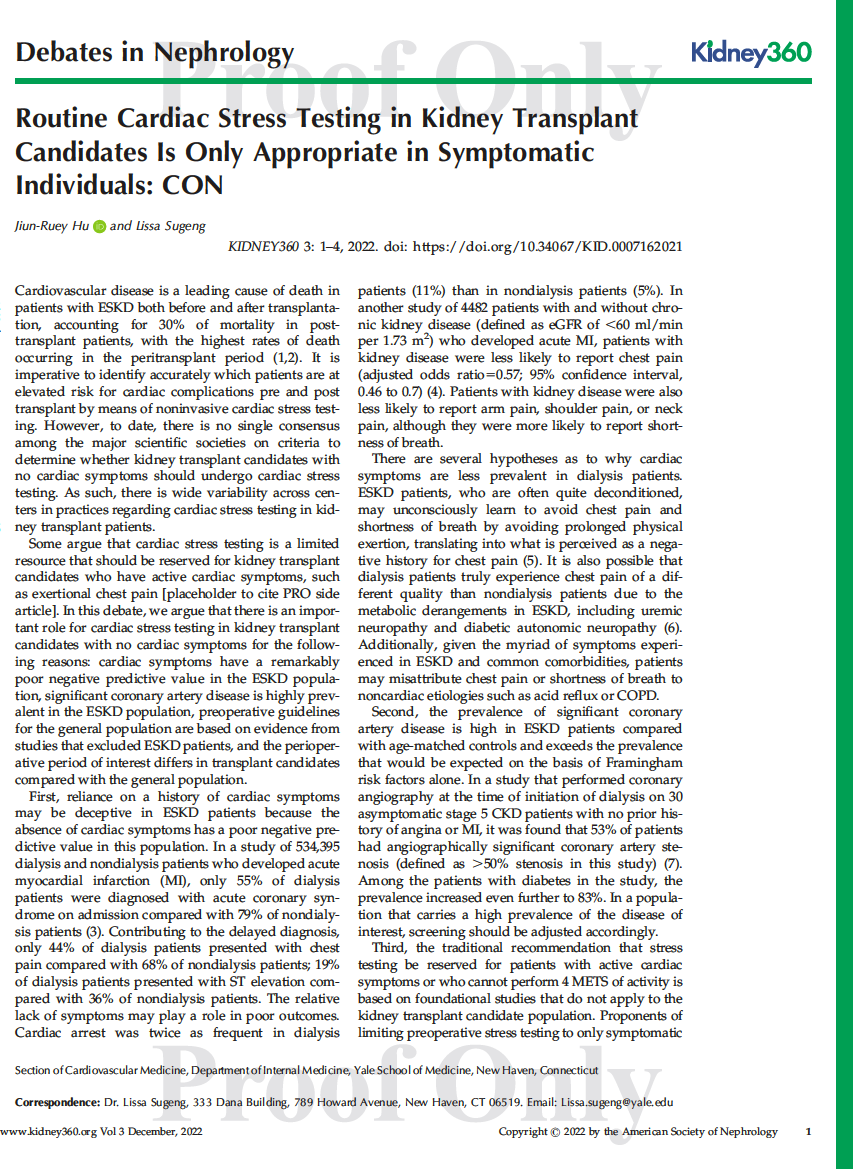📝 Abstract
On March 16, 2021, 8 adults, 6 of whom were women of Asian descent, were shot to death in Atlanta. At the county sheriff’s press briefing, the spokesperson of the investigation rationalized that it “was a really bad day” 1 for the suspect who was “pretty much fed up and had been, kind of, at the end of his rope.” While gun violence continues to be a public health problem in the United States, our country, including its institutions of academic medicine, has been dismissing another public health problem for decades: attacks against Asian Americans and Pacific Islanders (AAPIs).
Although AAPI individuals have been subject to harassment and assault for decades, the incidence of these attacks rose to nearly 3,800 reported events in 2021, exacerbated by racial scapegoating for the COVID-19 pandemic. In February 2021, a Thai-American medical student at Mount Sinai School of Medicine was dragged on the pavement after being called the “Chinese virus” and spat on. Even when anti-AAPI attacks do not cause physical injury, they are not harmless. Anti-AAPI attacks may lead to downstream anxiety, depression, posttraumatic stress disorder, smoking, and substance use, risking widening health disparities if unaddressed.


